
Kalundu: The Heartbeat of Lusaka's Serenity
Situated in the vibrant city of Lusaka, Kalundu is a picturesque neighbourhood that effortlessly combines modernity with tranquility. Its tree-lined streets and well-kept gardens offer a serene escape from the bustling city centre, making it a perfect destination for tourists seeking both relaxation and a taste of local Zambian culture. Kalundu is home to a variety of charming cafes, local eateries, and boutique shops that provide an authentic Zambian experience. Visitors can indulge in the rich culinary traditions of Zambia or shop for unique, handmade crafts that make for perfect souvenirs. Whether you're a foodie, a shopaholic, or simply someone looking to unwind, Kalundu has something for everyone. For those interested in history and culture, Kalundu is conveniently located near several cultural landmarks and museums. Additionally, the area is known for its friendly locals who are always eager to share stories and tips with visitors. The neighbourhood's welcoming atmosphere ensures that tourists feel right at home as they explore its many attractions.
Local tips in Kalundu
- Visit early in the morning to enjoy the peaceful atmosphere and avoid the midday heat.
- Try local Zambian dishes at the neighbourhood eateries for an authentic culinary experience.
- Take a leisurely stroll around the residential areas to appreciate the well-maintained gardens and local architecture.
- Engage with the friendly locals for insider tips and hidden gems in the area.
- Carry cash, as some smaller shops and cafes may not accept credit cards.
Iconic landmarks you can’t miss
Kalundu Market
Discover the heart of Lusaka at Kalundu Market, where vibrant culture, fresh produce, and local crafts come together for an unforgettable experience.
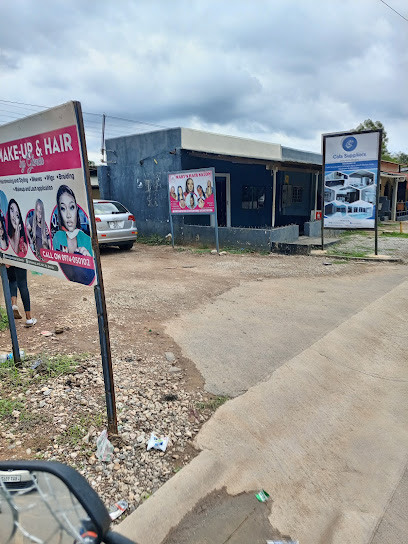
Buffaloes Park
Discover the tranquil beauty of Buffaloes Park in Lusaka, a perfect retreat for nature lovers and families amidst Zambia's vibrant landscapes.
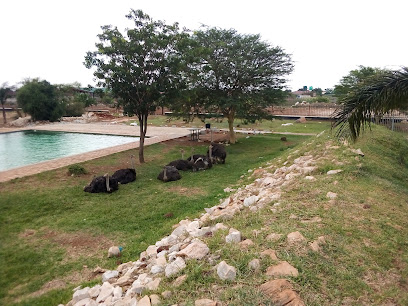
ngombe Bridge
Discover the stunning Ngombe Bridge in Lusaka, a beautiful architectural feat offering breathtaking views and a glimpse into local life.

PLOT NO. 11774, KAFULAFUTA ROAD -1104, KALUNDU, LUSAKA, ZAMBIA
Discover the vibrant spirit and culture of Lusaka at this unique housing complex, a glimpse into Zambian community life and local traditions.

iExplore Zambia
Experience the beauty of Zambia at iExplore Zambia, a premier tourist attraction in Lusaka offering adventure, culture, and nature.
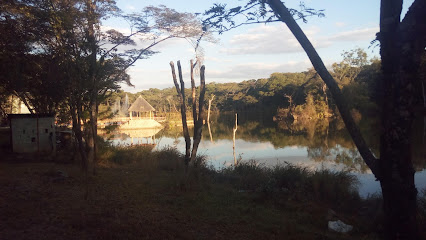
Chilenje House
Explore Zambia's vibrant culture and history at Chilenje House, a museum that brings to life the rich heritage of Lusaka.
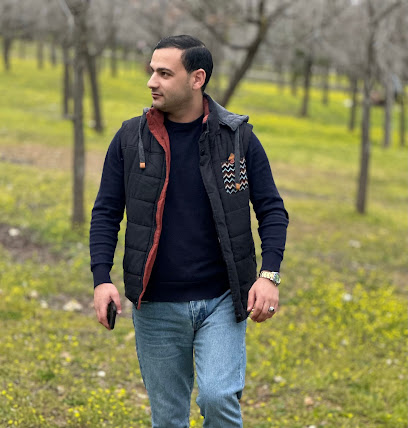
Kalimba farm
Explore Kalimba Farm in Lusaka, a serene tourist attraction offering wildlife experiences and tranquil landscapes perfect for family outings and relaxation.

Kamitondo Village, Sisapi
Experience the serene beauty and vibrant local culture at Kamitondo Village Park in Lusaka, a perfect escape for nature lovers and cultural enthusiasts.

Lusaka
Discover Lusaka, Zambia's vibrant capital, rich in culture, history, and natural beauty, offering unique experiences for every traveler.

Kizito Muchape
Explore Kizito Muchape, a historical landmark in Lusaka, where the rich cultural heritage of Zambia comes to life amidst stunning landscapes.

Happy Ndayi
Discover the breathtaking hiking trails of Happy Ndayi in Lusaka, Zambia, where nature's beauty awaits every adventurer.

Unmissable attractions to see
Freedom Statue
Discover the iconic Freedom Statue in Lusaka, a powerful symbol of Zambia's independence and a must-visit historical landmark for every traveler.
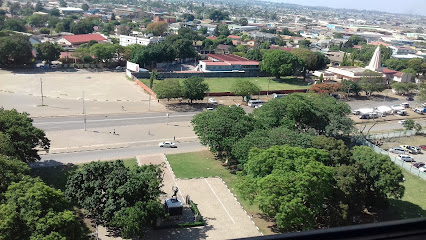
Happy Ndayi
Discover the serene beauty of Happy Ndayi, a premier hiking area in Lusaka, perfect for adventurers and nature lovers alike.

jaga
Explore Jaga Garden, a serene oasis in Lusaka perfect for relaxation, nature walks, and beautiful photography opportunities.

Essential places to dine
Urban Yard
Experience diverse culinary delights at Urban Yard – where seafood meets pizza and steak in Lusaka's vibrant dining scene.
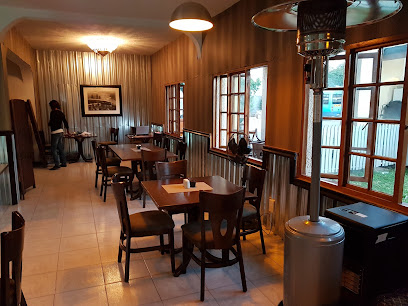
Makai Bar & Restaurant
Discover the vibrant taste of India at Makai Bar & Restaurant in Lusaka - where authentic cuisine meets a warm atmosphere.
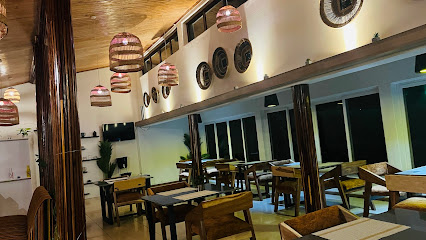
Yan & Yu BBQ Restaurant
Discover the vibrant tastes of authentic Chinese cuisine at Yan & Yu BBQ Restaurant in Lusaka.

LUCHAN BAR AND RESTAURANT
Savor diverse international cuisines at Luchan Bar and Restaurant in Lusaka – where every meal tells a story.

Cafe Nthandose
Experience authentic Zambian cuisine at Cafe Nthandose in Lusaka's vibrant Kalundu area - where every meal tells a story.

Qasioun
Discover Qasioun: A Culinary Gem in Lusaka Offering Authentic Zambian Flavors and Unforgettable Dining Experiences.

sylva
Experience authentic Zambian flavors at Sylva in Lusaka—where culinary traditions meet modern dining in a vibrant atmosphere.

Giggles Food - Kalundu
Experience authentic Zambian flavors at Giggles Food in Kalundu - where every meal is a celebration of taste and culture.

Richards pub
Experience authentic Zambian cuisine at Richards Pub in Lusaka - where vibrant atmosphere meets delicious flavors.

Food Cafe
Discover authentic Zambian cuisine at Food Cafe in Lusaka – where every bite tells a story of flavor and tradition.
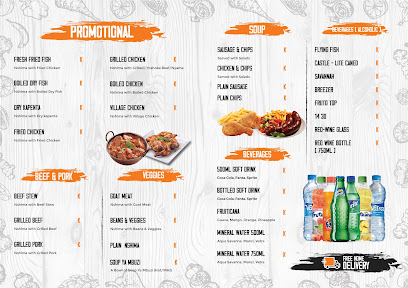
Markets, malls and hidden boutiques
EastPark Mall
Explore EastPark Mall in Lusaka for an unparalleled shopping experience with diverse stores, delicious dining, and vibrant entertainment options.
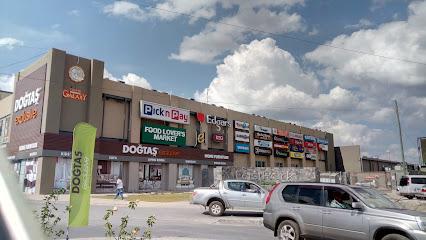
Arcades Shopping Mall
Discover the vibrant Arcades Shopping Mall in Lusaka, a shopping paradise featuring diverse stores, dining options, and entertainment for all ages.
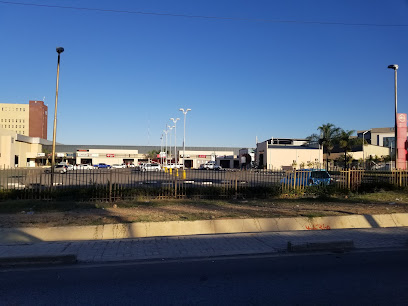
Shodol Eastpark Mall
Discover beauty delights at Shodol Eastpark Mall, Lusaka's premier destination for cosmetics, skincare, and exceptional service.
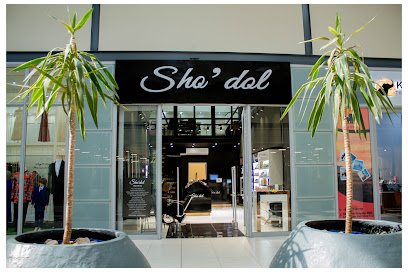
Kalundu Market
Discover the vibrant Kalundu Market in Lusaka, where fresh produce, local crafts, and authentic Zambian flavors await eager travelers.
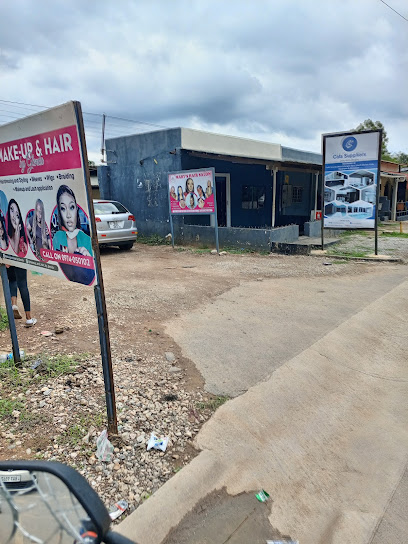
ZAMBEZI SHOPPING CENTRE
Experience vibrant shopping, diverse dining, and entertaining activities at Lusaka's premier retail destination, the Zambezi Shopping Centre.
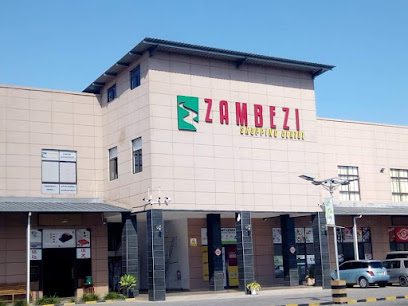
The Collective - Handcrafted Designs
Discover authentic Zambian craftsmanship at The Collective, a unique souvenir store in Lusaka offering handcrafted designs and delightful local coffee.
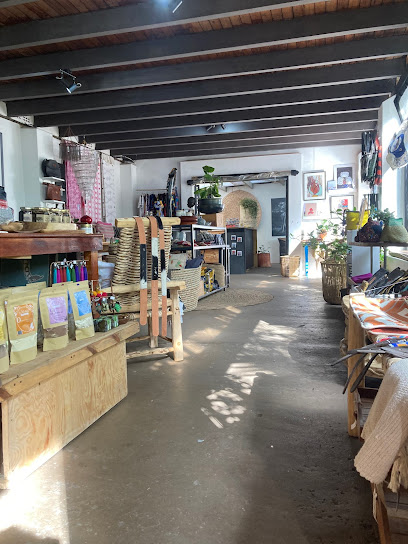
Mud Boutique cairo road
Shop at Mud Boutique on Cairo Road for unique Zambian fashion and crafts, a must-visit for every tourist exploring Lusaka.
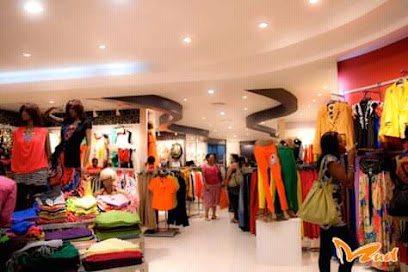
Mud Boutique
Explore unique Zambian fashion and handcrafted designs at Mud Boutique, Lusaka's premier clothing store for a cultural shopping experience.
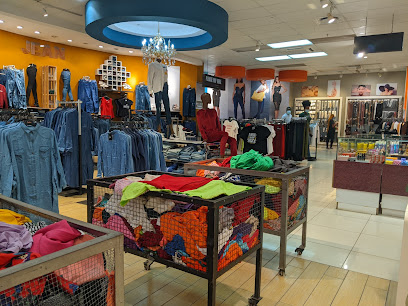
Team Five Gifts and Crafts
Explore Team Five Gifts and Crafts in Lusaka for unique souvenirs, handcrafted jewelry, and authentic African goods that celebrate local culture.
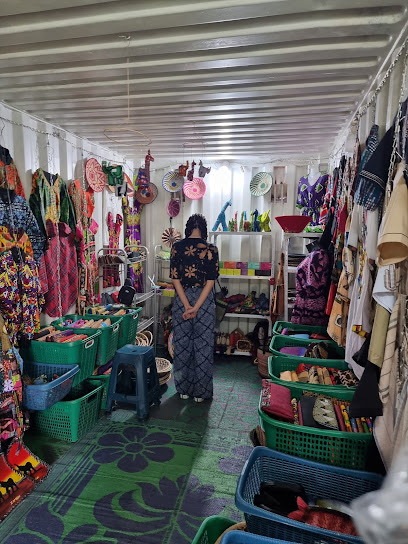
BLESSINGS BOUTIQUE
Explore the elegance and local craftsmanship at Blessings Boutique in Lusaka, a must-visit for unique fashion and souvenirs.

Essential bars & hidden hideouts
Miami Lounge
Discover the lively Miami Lounge in Lusaka, a perfect retreat for cocktails, local cuisine, and unforgettable nightlife experiences.
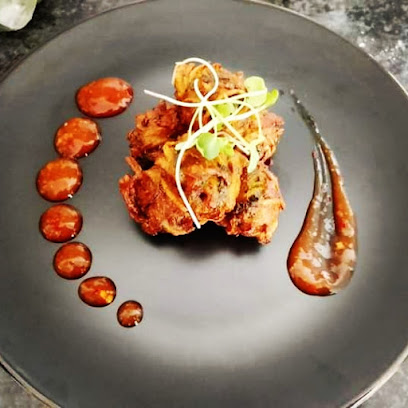
Moto Villa
Discover the vibrant nightlife of Lusaka at Moto Villa, the perfect bar to unwind and connect with locals and fellow travelers alike.
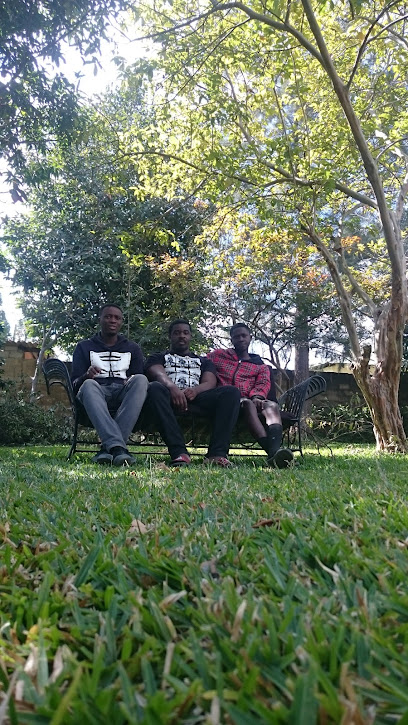
LUCHAN BAR AND RESTAURANT
Experience authentic Zambian cuisine at Luchan Bar and Restaurant in Lusaka, a perfect blend of local flavors and warm hospitality.
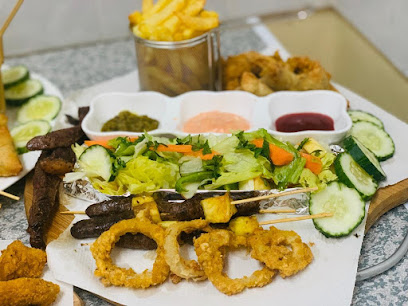
Funkis Bottle store
Discover the vibrant atmosphere of Funkis Bottle Store - Lusaka's go-to bar for locals and travelers seeking a unique nightlife experience.
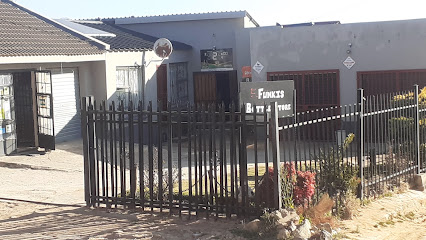
Pitus bar and restaurant
Discover the vibrant atmosphere of Pitus Bar and Restaurant in Lusaka, where local flavors meet lively nightlife.

ELIPHI BAR AND RESTAURANT
Experience the vibrant nightlife of Lusaka at Eliphi Bar and Restaurant, where local flavors and refreshing drinks come together in a lively atmosphere.
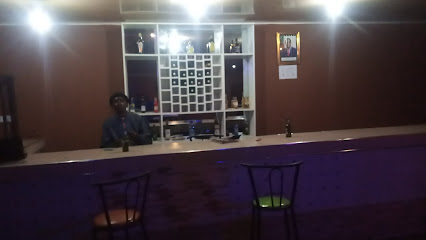
Patrick
Experience the vibrant nightlife of Lusaka at Patrick's Bar, where locals and tourists mingle over drinks and live music.

joses
Discover the vibrant nightlife of Lusaka at Jose's, a lively bar offering refreshing drinks and local entertainment in a welcoming atmosphere.

Zohran Bar & Cafe Lusaka
Experience the vibrant atmosphere and local flavors at Zohran Bar & Cafe Lusaka, your go-to spot for refreshment and relaxation.

Brother easy
Experience the vibrant nightlife of Lusaka at Brother Easy, a lively bar offering a taste of local culture and refreshing drinks.

Local Phrases
-
- HelloMoni
[moh-nee] - GoodbyePezzah
[peh-zah] - YesEe
[ee] - NoAwe
[ah-way] - Please/You're welcomeTafadhali
[ta-fah-dah-lee] - Thank youZikomo
[zee-koh-moh] - Excuse me/SorryPepani
[peh-pah-nee] - How are you?Muli Bwanji?
[moo-lee bwan-jee] - Fine. And you?Yambuyu. Ndi inu?
[yam-boo-yoo. ndee ee-noo] - Do you speak English?Mukufuna kuyankhula Chingerezi?
[moo-koo-fu-nah koo-yahn-koo-lah ching-geh-reh-zee] - I don't understandSindimafunira
[seen-dee-mah-foo-nee-rah]
- HelloMoni
-
- I'd like to see the menu, pleaseNdimafuna kuona menu, chonde
[ndee-mah-foo-nah kwoh-nah meh-noo, chon-deh] - I don't eat meatSindidya nyama
[seen-dee-dyah nyah-mah] - Cheers!Mwauka
[mwow-kah] - I would like to pay, pleaseNdimafuna kuyimba, chonde
[ndee-mah-foo-nah koo-yim-bah, chon-deh]
- I'd like to see the menu, pleaseNdimafuna kuona menu, chonde
-
- Help!Chitani chidwi!
[chee-tah-nee chee-dwee] - Go away!Pita uku!
[pee-tah oo-koo] - Call the Police!Pangani foni ya Pulezidenti!
[pan-gah-nee foh-nee yah poo-leh-zen-dee-tee] - Call a doctor!Pangani dokotala!
[pan-gah-nee doh-koh-tah-lah] - I'm lostNdili wachinyanina
[ndee-lee wah-chee-nyah-nee-nah] - I'm illNdili ndiwofuna
[ndee-lee ndee-woh-foo-nah]
- Help!Chitani chidwi!
-
- I'd like to buy...Ndimafuna kugula...
[ndee-mah-foo-nah koo-goo-lah] - I'm just lookingNdili ndinu
[ndee-lee ndee-noo] - How much is it?Ndalipilira bwanji?
[ndah-lee-pee-lee-rah bwan-jee] - That's too expensiveIzi zochita kwambiri
[ee-zee zoh-chee-tah kwam-bee-ree] - Can you lower the price?Mukhoza kugwiritsa ntchito?
[moo-koh-zah koo-gwee-ree-tsah nchee-toh]
- I'd like to buy...Ndimafuna kugula...
-
- What time is it?Ni masiku anga?
[nee mah-see-koo ahn-gah] - It's one o'clockSukulu yamodzi
[soo-koo-loo yah-moh-dzee] - Half past (10)Kuchuluka nthawi yambiri
[koo-choo-loo-kah ntha-wee yam-bee-ree] - MorningMawa
[mah-wah] - AfternoonChiyamikira
[chee-yah-mee-kee-rah] - EveningMawa
[mah-wah] - YesterdayNkamubanda
[n-kah-moo-bahn-dah] - TodayLero
[leh-roh] - TomorrowMawa
[mah-wah] - 1Moja
[moh-jah] - 2Ziwiri
[zee-wee-ree] - 3Tlathu
[tla-thoo] - 4Nzine
[nzee-neh] - 5Moyo
[moh-yoh] - 6Sanu
[sah-noo] - 7Tsiku
[tsi-koo] - 8Nwalungu
[n-wah-loon-goo] - 9Kuwiri
[koo-wee-ree] - 10Kumi
[koo-mee]
- What time is it?Ni masiku anga?
-
- Where's a/the...?Pali...?
[pah-lee] - What's the address?Adilesi ili kuti?
[ah-dee-leh-see ee-lee koo-tee] - Can you show me (on the map)?Mukhoza kundikonzera (mu mapu)?
[moo-koh-zah koon-dee-kohn-zeh-rah (moo mah-poo)] - When's the next (bus)?Ndi nthawi ija (bus)?
[ndee ntha-wee ee-jah (boos)] - A ticket (to ....)Namalonda (ku ....)
[nah-mah-lohn-dah (koo)]
- Where's a/the...?Pali...?
History of Kalundu
-
Kalundu, located in Lusaka, experienced significant transformation during the colonial period in the early 20th century. As Lusaka evolved into the capital of Northern Rhodesia, the surrounding neighborhoods, including Kalundu, were developed to accommodate the growing urban population. Infrastructure improvements, such as roads and public amenities, were introduced, reflecting the colonial administration's influence on urban planning.
-
Following Zambia's independence in 1964, Kalundu witnessed a surge in residential development as the government focused on providing housing for its citizens. The neighborhood became a melting pot of various cultures, with people from different ethnic backgrounds settling in the area. This period also saw the establishment of local markets and community centers, fostering a sense of community and cultural exchange.
-
The economic hardships faced by Zambia in the 1980s and 1990s impacted Kalundu, as many residents struggled with unemployment and reduced access to services. However, the community displayed resilience by forming cooperative societies and small businesses, helping to sustain the local economy. This spirit of entrepreneurship has contributed to Kalundu's ongoing vibrancy and adaptability.
-
Kalundu has become known for its rich cultural heritage, with various festivals and events celebrating Zambian traditions. The neighborhood hosts annual gatherings that showcase local music, dance, and cuisine, fostering a strong sense of identity among residents. These cultural expressions not only preserve history but also promote tourism in Lusaka, drawing visitors to experience the local way of life.
-
In recent years, Kalundu has seen an influx of new developments, including residential complexes and commercial enterprises. This modernization reflects the broader trends in Lusaka, where urbanization is reshaping the landscape. As Kalundu adapts to these changes, it continues to balance the preservation of its cultural heritage with the demands of a growing urban environment.
Kalundu Essentials
-
Kalundu is accessible from various parts of Lusaka. The nearest major transport hub is the Intercity Bus Terminal, where you can catch a taxi or a minibus (commonly referred to as 'kombi') to Kalundu. If traveling from the city center, taxis are readily available and typically take about 15-30 minutes, depending on traffic. For a more budget-friendly option, buses heading towards the southern suburbs often stop near Kalundu.
-
Kalundu is best explored on foot, especially for short distances to local shops and eateries. For longer journeys, local taxis are the most convenient option, and they are generally affordable. Public minibuses operate extensively; however, they can be crowded and less comfortable. Bicycles are also an option for the more adventurous, with some local rental shops offering bikes for hire.
-
Kalundu is generally safe but, like any urban area, it is advisable to remain vigilant. Areas closer to busy markets may experience petty crime, so it is best to avoid carrying large amounts of cash or flashy jewelry. While Kalundu does not have specific high-crime zones targeting tourists, it’s wise to avoid traveling alone at night, and always be cautious in isolated or poorly lit areas.
-
In case of an emergency, dial 112 for police assistance or 999 for medical emergencies. There are local clinics and hospitals in and around Kalundu, but it is advisable to have travel insurance that covers medical needs. Familiarize yourself with the location of the nearest hospital upon arrival in the neighbourhood. For minor health issues, local pharmacies are available for over-the-counter medications.
-
Fashion: Do dress modestly, especially when visiting local markets or religious sites. Avoid wearing revealing clothing. Religion: Do respect local customs; it’s polite to greet with a handshake. Public Transport: Do keep your belongings close and be courteous to fellow passengers. Don't eat or drink on public transport. Greetings: Do greet people warmly; a smile goes a long way. Eating & Drinking: Do try local dishes and accept invitations to meals. Don't waste food, as it is considered disrespectful.
-
To experience Kalundu like a local, visit the vibrant markets where you can find fresh produce and traditional Zambian foods. Engage with community members, as they are generally welcoming and happy to share their culture. Try local delicacies such as nshima and catch a local football match for a taste of the community spirit. Look out for cultural events or festivals that may be happening during your visit for an immersive experience.
Nearby Cities to Kalundu
-
Things To Do in Kabwe
-
Things To Do in Kariba
-
Things To Do in Ndola
-
Things To Do in Kitwe
-
Things To Do in Chinhoyi
-
Things To Do in Livingstone
-
Things To Do in Hwange
-
Things To Do in Victoria Falls
-
Things To Do in Harare
-
Things To Do in Solwezi
-
Things To Do in Kasane
-
Things To Do in Gweru
-
Things To Do in Katima Mulilo
-
Things To Do in Chipata
-
Things To Do in Nyanga



